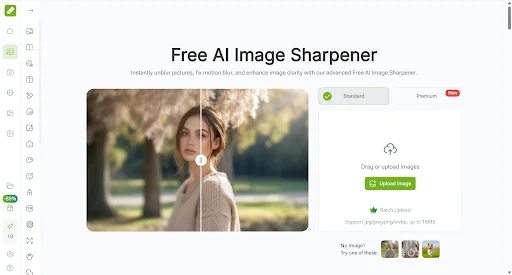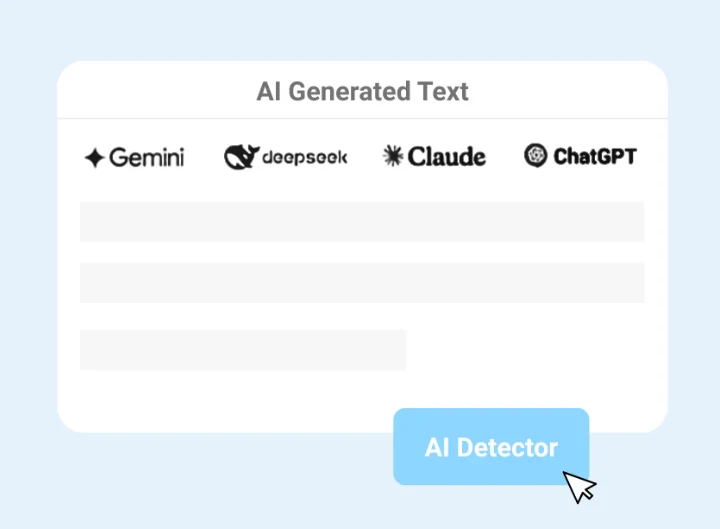How Will Artificial Intelligence Transform Digital Marketing in the Next 5 Years?

In the fast-paced and ever-evolving world of digital marketing, one technological advancement stands poised to revolutionize how brands interact with their audiences: Artificial Intelligence (AI). While AI’s impact on digital marketing has already begun to be felt, it’s safe to say that we are still in the early stages of its transformative journey. In the next five years, AI will dramatically reshape the marketing landscape, enabling businesses to work smarter, personalize content more effectively, and improve overall customer experiences.
As digital marketing continues to become more data-driven and consumer expectations grow, AI offers a significant advantage in automating processes, optimizing marketing strategies, and delivering enhanced customer experiences. This blog delves into how AI is expected to reshape digital marketing in the coming years, looking at areas such as personalization, content creation, predictive analytics, AI-driven advertising, and more.
The Role of AI in Personalized Marketing
Personalization has been the key to building lasting relationships with customers. Today’s consumers expect tailored experiences, whether they are browsing a website, receiving email offers, or interacting with ads. In fact, according to a report by Epsilon, 80% of consumers are more likely to make a purchase when brands offer personalized experiences.
AI plays a crucial role in delivering personalized experiences at scale. By leveraging vast amounts of data, AI can create highly targeted and individualized content that resonates with each user based on their preferences, behaviors, and past interactions. This is a vital skill that professionals can master through a digital marketing course to stay ahead in the AI-driven marketing landscape.
AI-Driven Recommendation Systems
One of the most powerful examples of AI in personalized marketing is recommendation systems. Companies like Netflix, Amazon, and Spotify have mastered the art of recommending content, products, and services based on users’ past behaviors and interactions. These algorithms analyze data points such as what users have watched, bought, or listened to, and use machine learning to predict what they are likely to enjoy next.
For digital marketers, recommendation systems are invaluable tools for personalizing product recommendations, email marketing campaigns, and website content. In the next five years, we can expect recommendation engines to become even more accurate, incorporating a wider array of data sources to predict customer behavior with greater precision.
Dynamic Website Personalization
AI is already enabling marketers to create dynamic, personalized website experiences for visitors. By analyzing factors such as browsing history, geographic location, and demographic data, AI can alter website elements such as banners, product displays, and offers to cater to each visitor’s unique preferences.
In the future, website personalization will become even more advanced. AI will be able to predict the exact type of content that will engage a user and make real-time changes to the website to improve conversion rates. For example, if a user is browsing a fashion website and frequently looks for eco-friendly products, the AI could highlight environmentally conscious brands and products, increasing the likelihood of a purchase.
Predictive Analytics and Customer Behavior
Predictive analytics, powered by AI, is one of the most promising areas for transforming digital marketing. Predictive models use historical data to identify patterns and forecast future behavior. For marketers, predictive analytics can be a game-changer in terms of customer segmentation, targeting, and marketing automation.
Customer Segmentation and Targeting
AI’s ability to process and analyze vast amounts of data in real-time enables it to segment customers based on a wide range of factors, including purchasing history, online behavior, and demographics. Traditional segmentation methods, which might group customers based on broad characteristics such as age and gender, are increasingly being replaced by more granular, behavior-based segmentation powered by AI.
With predictive analytics, digital marketers can better understand customer intent and target individuals with hyper-relevant messages at the right time. This leads to higher engagement rates and a more efficient allocation of marketing budgets. For example, offering personalized coupons or discounts to customers who have shown interest in certain products can significantly increase conversion rates. This leads to higher engagement rates and a more efficient allocation of marketing budgets.
Lifecycle Prediction and Churn Prevention
AI also allows marketers to predict the likelihood of customers advancing through the marketing funnel or churning. By analyzing user interactions, purchase history, and engagement levels, AI can help predict when a customer is most likely to convert or abandon their journey. This gives marketers a valuable opportunity to intervene and offer personalized incentives or content that can keep the customer engaged.
Predictive analytics can also help identify high-value customers early in the sales cycle, allowing marketers to prioritize efforts on those who are more likely to convert. On the other hand, for customers at risk of churning, AI can identify the factors contributing to the decline in engagement and suggest tailored retention strategies.
AI in Content Creation: Automating the Copywriting Process
Content creation is one of the most labor-intensive aspects of digital marketing. Whether it’s blog posts, email newsletters, product descriptions, or social media updates, marketers must create a continuous stream of content that resonates with their target audience.
AI is making strides in automating the content creation process. Tools like GPT (Generative Pretrained Transformer), which powers platforms like ChatGPT, are capable of generating coherent and contextually appropriate text based on a few input keywords or prompts.
AI-powered copywriting tools are already being used by digital marketers to streamline content creation. Platforms like Jasper and Copy.ai can generate product descriptions, social media posts, and even entire blog articles in a matter of seconds. These tools can significantly reduce the time and effort required to produce high-quality content, allowing marketers to focus on strategy and creativity. Those looking to upskill in AI-driven marketing can explore the best digital marketing courses available online.
AI-Powered Copywriting
AI-powered copywriting tools are already being used by digital marketers to streamline content creation. Platforms like Jasper and Copy.ai can generate product descriptions, social media posts, and even entire blog articles in a matter of seconds. These tools can significantly reduce the time and effort required to produce high-quality content, allowing marketers to focus on strategy and creativity.
While AI-generated content is certainly efficient, there are still challenges in maintaining the human touch. AI-generated text can sometimes lack the emotional resonance or creativity that human writers bring to the table. However, as AI continues to evolve, these tools will become better at mimicking human-like tone and style, making them an even more valuable asset for content marketers.
AI in SEO and Content Optimization
AI is also transforming SEO by helping marketers create content that ranks higher in search engines. AI-powered tools such as SurferSEO and Clearscope analyze top-ranking content and recommend keywords, phrases, and topics to improve the search engine ranking of a webpage. By integrating these tools into the content creation process, marketers can optimize their content for SEO while ensuring it remains relevant and valuable to their target audience.
In the next five years, AI will likely be able to analyze user intent more accurately and recommend topics based on voice search queries, trends, and even emotions. This will enable marketers to create highly targeted content that aligns with the evolving needs of search engine users.
Chatbots and Conversational AI for Customer Engagement
Customer engagement is one of the primary goals of any marketing strategy. AI-driven chatbots and conversational interfaces are becoming an integral part of digital marketing, enabling businesses to interact with customers in real-time and provide instant support.
AI-Powered Customer Support
AI chatbots are already capable of answering common customer queries, guiding users through purchasing decisions, and even resolving complaints. These chatbots use Natural Language Processing (NLP) to understand and respond to human queries in a conversational manner. As AI improves, chatbots will become even more sophisticated, handling complex requests and providing personalized responses based on customer data.
In addition to providing customer support, chatbots are also being used to generate leads and facilitate conversions. For example, if a user is browsing an e-commerce website and shows interest in a specific product, a chatbot can proactively offer discounts or more information, pushing the user closer to making a purchase.
Conversational Commerce
Conversational commerce, the intersection of messaging and e-commerce, is set to explode in the next five years. AI-powered chatbots will not only provide customer support but will also facilitate the entire purchase journey. Customers will be able to interact with brands, ask questions, browse products, and complete transactions all within a messaging platform. This seamless experience will drive higher conversion rates and improve customer satisfaction.
AI-Driven Advertising: The Future of Paid Media
Paid media is a central part of most digital marketing strategies, helping businesses to reach new audiences and drive conversions. However, managing paid campaigns can be resource-intensive and challenging, especially when it comes to optimizing ad spend and targeting the right audiences. This is where AI steps in, offering advanced solutions to make paid advertising more efficient and impactful.
Automated Ad Targeting and Optimization
One of the most exciting prospects of AI in advertising is the ability to automate ad targeting and campaign optimization. AI algorithms can analyze vast amounts of data to identify patterns and trends that help marketers deliver their ads to the most relevant audience segments. In traditional advertising, marketers typically target audiences based on demographics, behaviors, and interests. Still, AI takes this a step further by considering a much wider range of data points, such as time of day, location, browsing history, and even social media activity.
AI-driven platforms like Google Ads and Facebook Ads are already integrating machine learning to help marketers optimize their ad campaigns in real-time. For example, AI can automatically adjust bidding strategies based on a user’s likelihood to convert, ensuring that ads are shown to individuals most likely to take the desired action. This level of automation can lead to more cost-effective advertising campaigns, reducing wasted spend and increasing ROI.
Dynamic Creative Optimization (DCO)
AI-powered Dynamic Creative Optimization (DCO) is another breakthrough in digital advertising. DCO leverages AI to automatically adjust the creative elements of an ad based on the audience it’s being shown to. This means that businesses can run multiple versions of an ad (with different images, headlines, or calls to action) and let AI determine which combination works best for each user.
For example, an online clothing store could create different variations of an ad based on a user’s past purchases, browsing history, or demographic information. If the system recognizes that a particular user has recently been searching for women’s dresses, it will display an ad featuring a new dress collection. AI-powered DCO ensures that each user sees the most relevant and engaging ad, improving click-through rates and conversions.
AI and Video Ads: Improving Engagement and Performance
Video advertising is becoming an increasingly important part of digital marketing, with platforms like YouTube, Facebook, and Instagram offering businesses the chance to showcase their products and services through dynamic video content. AI will continue to play a crucial role in improving video ad performance by analyzing viewer engagement and optimizing the ad delivery in real-time.
AI-driven video ads can analyze user interactions, such as how long a viewer watches a video or where they drop off, to adjust and optimize future video ads. For instance, AI could analyze which parts of a video ad attract more attention and automatically shorten or edit future videos to focus on these high-engagement moments.
Furthermore, AI can help create personalized video ads by dynamically tailoring the content of the video to each individual viewer. For example, if a viewer has recently interacted with a specific product, AI could generate a personalized video featuring that product, increasing the likelihood of a conversion.
Voice Search Optimization: The Impact of AI on SEO
With the growing popularity of voice-activated devices such as Amazon’s Alexa, Apple’s Siri, and Google Assistant, voice search is becoming an increasingly important factor in SEO. Voice search queries differ from text-based searches because they tend to be longer and more conversational. Optimizing content for voice search will be crucial for digital marketers who want to stay ahead of the curve and maintain visibility in search results.
Understanding Natural Language Processing (NLP)
Voice search optimization relies heavily on Natural Language Processing (NLP), a subset of AI that enables machines to understand and interpret human language. NLP allows AI systems to process and understand the meaning behind voice queries, rather than simply focusing on individual keywords.
When users perform a voice search, they typically ask questions in a natural, conversational way (e.g., “What is the best restaurant near me?”). Unlike traditional text-based search queries, which are often concise and use specific keywords, voice searches are more context-driven and contain more information. AI-powered search engines, like Google, can process these longer, more complex queries by analyzing both the content and intent behind them.
As voice search continues to rise in popularity, it will be crucial for digital marketers to optimize their content for voice search. AI will allow marketers to identify the most common conversational queries in their industry and structure their content to answer those questions directly.
Optimizing for Conversational Search Queries
Voice search queries are typically more question-based than traditional searches. As AI systems become more sophisticated, marketers will need to adapt their SEO strategies to target long-tail, conversational keywords. This means focusing on creating content that answers specific questions and provides detailed, relevant information that aligns with voice search queries.
For example, instead of targeting a simple keyword like “best Italian restaurant,” marketers may need to optimize for long-tail queries like “What is the best Italian restaurant near Central Park?” or “Where can I find the best vegan pasta in New York City?” AI will help marketers identify the types of conversational queries that are most likely to drive traffic to their site, allowing them to optimize their content for these emerging search patterns.
In addition to optimizing content for conversational queries, AI will help marketers understand the nuances of local SEO for voice search. As voice searches are often location-based, businesses will need to ensure that their content is properly optimized for local search results, using AI to identify location-specific keywords and phrases.
AI-Powered Marketing Automation: Streamlining Campaign Management
Marketing automation has been around for years, but AI is taking it to new heights. AI-powered marketing automation platforms use machine learning algorithms to optimize every aspect of a digital marketing campaign, from content creation to customer segmentation and lead nurturing.
Smarter Email Marketing Campaigns
Email marketing is one of the most powerful tools in a digital marketer’s arsenal, but creating personalized, targeted email campaigns at scale can be time-consuming. AI-driven email marketing platforms can take the guesswork out of email campaign management by analyzing data on customer behavior, preferences, and engagement history. AI can then use this data to send personalized email messages at the right time, with the right content, to the right audience.
For example, an AI system could analyze a customer’s browsing history and send them an email with product recommendations based on their past behavior. Or, it could determine the best time to send an email based on when a customer is most likely to open it. By using AI to automate and optimize email campaigns, marketers can improve engagement rates, reduce bounce rates, and ultimately drive more conversions.
Automated Social Media Management
Social media management is another area where AI is expected to make a significant impact. With AI-powered social media tools, digital marketers can automate tasks such as scheduling posts, analyzing engagement, and even responding to comments and messages.
For instance, AI systems can analyze patterns in user behavior and predict the optimal times to post on various social platforms. They can also recommend hashtags or identify trending topics that are likely to generate engagement. Additionally, AI can help marketers track brand mentions and sentiment across social media, giving them valuable insights into customer perception and engagement.
AI-powered tools like chatbots can also be used for social media customer service, responding to inquiries, and resolving issues in real-time. This reduces the need for human intervention, allowing businesses to scale their customer service efforts without increasing headcount.
AI and Data-Driven Marketing: Unlocking Insights and Innovation
In digital marketing, data is everything. The more data marketers have, the more targeted and personalized their campaigns can be. However, the sheer volume of data available can be overwhelming, making it difficult for marketers to extract actionable insights. AI’s ability to process and analyze large datasets allows marketers to uncover insights that would be difficult or impossible to identify manually.
Predictive Analytics and Insights
AI-powered predictive analytics tools enable marketers to identify emerging trends, forecast customer behavior, and anticipate market changes. By analyzing historical data and identifying patterns, AI can predict which products, services, or campaigns are likely to be successful in the future.
For example, AI can predict which customers are most likely to convert, which leads are most likely to churn, or which products will likely see an uptick in demand. These insights allow marketers to make more informed decisions, optimize their campaigns in real-time, and allocate resources more effectively.
Enhancing Customer Experience Through AI-Driven Insights
Beyond marketing optimization, AI can also be used to enhance the overall customer experience. By analyzing customer interactions across multiple touchpoints (e.g., website visits, social media engagement, email responses), AI can help businesses better understand their customers’ needs and preferences.
AI-driven insights allow businesses to anticipate customer questions, resolve issues before they escalate, and deliver highly relevant content at the right time. By understanding customer intent, AI can help businesses provide a more seamless, personalized experience that drives satisfaction and loyalty.
Conclusion: The Future of AI in Digital Marketing
The next five years will undoubtedly see significant advancements in AI technology, and its impact on digital marketing will continue to grow. From personalized experiences and content automation to smarter advertising and predictive analytics, AI is transforming how brands connect with their customers and optimize their marketing strategies.
As AI continues to evolve, it will become an indispensable tool for digital marketers, enabling them to work smarter, not harder. By embracing AI, marketers can unlock new levels of efficiency, creativity, and innovation, ultimately driving better results and creating more meaningful customer relationships.
The key to staying ahead of the competition will be understanding how to integrate AI into marketing strategies effectively and leveraging its capabilities to create personalized, engaging, and data-driven campaigns that deliver real value. The future of digital marketing is AI-driven, and the brands that adapt to this shift will be the ones that thrive in an increasingly complex and fast-paced marketplace.

Brian Ferdinand of EverForward Trading Joins Forbes Finance Council, Expanding His Voice on Markets and Risk

Get Any Company Objectives or News of rox.com

How Tax Accountants Support Entrepreneurs And Startups

Why "Best Planner Apps" Dont Fix Bad Planning Habits

Brian Ferdinand of EverForward Trading Joins Forbes Finance Council, Expanding His Voice on Markets and Risk

Artificial Intelligence: Transforming the Future of Business and Everyday Life

AI-Driven Image Restoration & Reuse: VisualGPT AI Image Sharpener

The Ethical Frontier: Rethinking Academic Integrity in the Age of Generative AI








